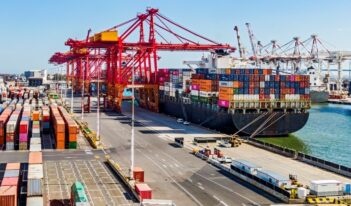
The World Trade Organization’s dispute settlement system is in danger of collapse.
One of the pillars of the global trade order, the World Trade Organization’s (WTO) dispute settlement system, is set to collapse quietly this year. The collapse has been in the making for over two years, driven by a U.S. blockade on appointments to the WTO’s highest court, the Appellate Body. Absent new appointments, which can only occur by consensus of all WTO members, in December the Appellate Body will shrink to only one member out of its standard of seven, two short to form a quorum of three necessary to hear appeals and settle trade disputes.
At stake is a unique system that has, on balance, safeguarded the interests of all WTO members regardless of their economic size or diplomatic influence.
Governments must settle trade disputes through the dispute settlement system if other diplomatic means are exhausted. The dispute settlement system, often referred to as the “crown jewel” of the WTO, provides governments the right to appeal decisions and the right to withdraw trade concessions and raise tariffs in the event of an adverse finding. The international legitimacy of the WTO dispute settlement system makes it an indispensable tool that governments can use to hold trading partners accountable without entering a cycle of tit-for-tat tariff escalation in a bid to change behavior.
The United States has been particularly successful in using the WTO dispute settlement system to challenge foreign trade measures it believes breach WTO rules. More often than not, the WTO dispute settlement system has produced rulings favorable to the United States. The United States has won roughly 85 percent of the cases it has brought against trading partners. And the rate of compliance with WTO rulings is impressive for an international dispute settlement system.
Yet the United States, over the course of multiple administrations, has complained about the WTO dispute settlement system. Generally, the United States asserts that the Appellate Body has exhibited too much judicial activism. In the view of the United States, the Appellate Body has, through its rulings, reinterpreted the agreements which form the WTO. In a related complaint, the United States has voiced concern over the Appellate Body disregarding the very rules that govern it, such as deadlines for reports.
Some WTO rules are ambiguous and Appellate Body members may feel the need to read meaning into them in order to fill gaps. This has been deemed unacceptable to the United States for two reasons.
First, on principle, changes to WTO rules and agreements can only be made via consensus of all WTO members. By interpreting WTO rules through decisions, the Appellate Body, a group of trade experts, is effectively modifying WTO rules without the required negotiation by the governments that comprise the WTO’s membership. For the United States, this type of judicial activism equates to a theft of sovereignty.
Second, the United States claims that the Appellate Body has harmed U.S. interests by interpreting rules in a way that hamstrings the United States’s ability to defend against unfair trade practices.
The Trump Administration’s hold on new appointments to the Appellate Body stems from its frustration over the WTO membership’s lack of action to resolve its complaints.
Although there is merit to the U.S. concerns, the costs of an inoperable Appellate Body outweigh any benefits that the United States could gain from its current approach.
If the United States is seeking to reform the Appellate Body, its current strategy has failed to deliver. The United States has blocked new appointments to the Appellate Body for two years while, without offering specifics or proposals, demanding a resolution to its concerns. Despite a lack of clarity on what reforms would satisfy the United States, a range of WTO members have offered proposals in response to U.S. concerns, but the United States has yet to endorse any of them.
If the United States seeks to render the Appellate Body inoperable, it appears set to succeed, but at great cost to its own trade relationships around the world and to the global trade system writ large.
With no option to appeal, the overall trade dispute settlement system could break down. Ongoing disputes would be left in limbo, essentially unresolvable. Countries could opt to join a parallel appeals system driven by the European Union and Canada, but that system would be handicapped because it would not include the United States, the world’s largest economy and most frequent respondent and complainant at the WTO.
Without a multilateral architecture to hold rule-breakers accountable, international economic relations would revert to the law of the jungle, where economic might makes right. That reversion takes place to the detriment of multinational businesses that rely on global supply chains and need policy predictability and international economic stability. It also disadvantages the billions of consumers around the world who have benefited from cheaper products made available by globalization. What good are rules if they are not enforceable?
The current Administration may think it would fare better in a world where its trade policy is unconstrained by enforceable, internationally agreed upon rules. That belief ignores recent experience. Steel and aluminum tariffs imposed by the United States, debatably in breach of its own WTO obligations, have been met by swift retaliation or negotiated quotas that do more harm than good to U.S. companies and consumers. The U.S. trade dispute with China, which has largely taken place outside of the WTO, has spiraled out of control, unconstrained by international rules.
Instead of abandoning a system that, although imperfect, has generally worked for the United States, the Trump Administration should put forward a concrete proposal to reform the Appellate Body and negotiate in good faith with WTO members to ensure the dispute settlement system remains operable. Absent that, the global trade order will be put back decades and uncertainty will flood the global economy.




